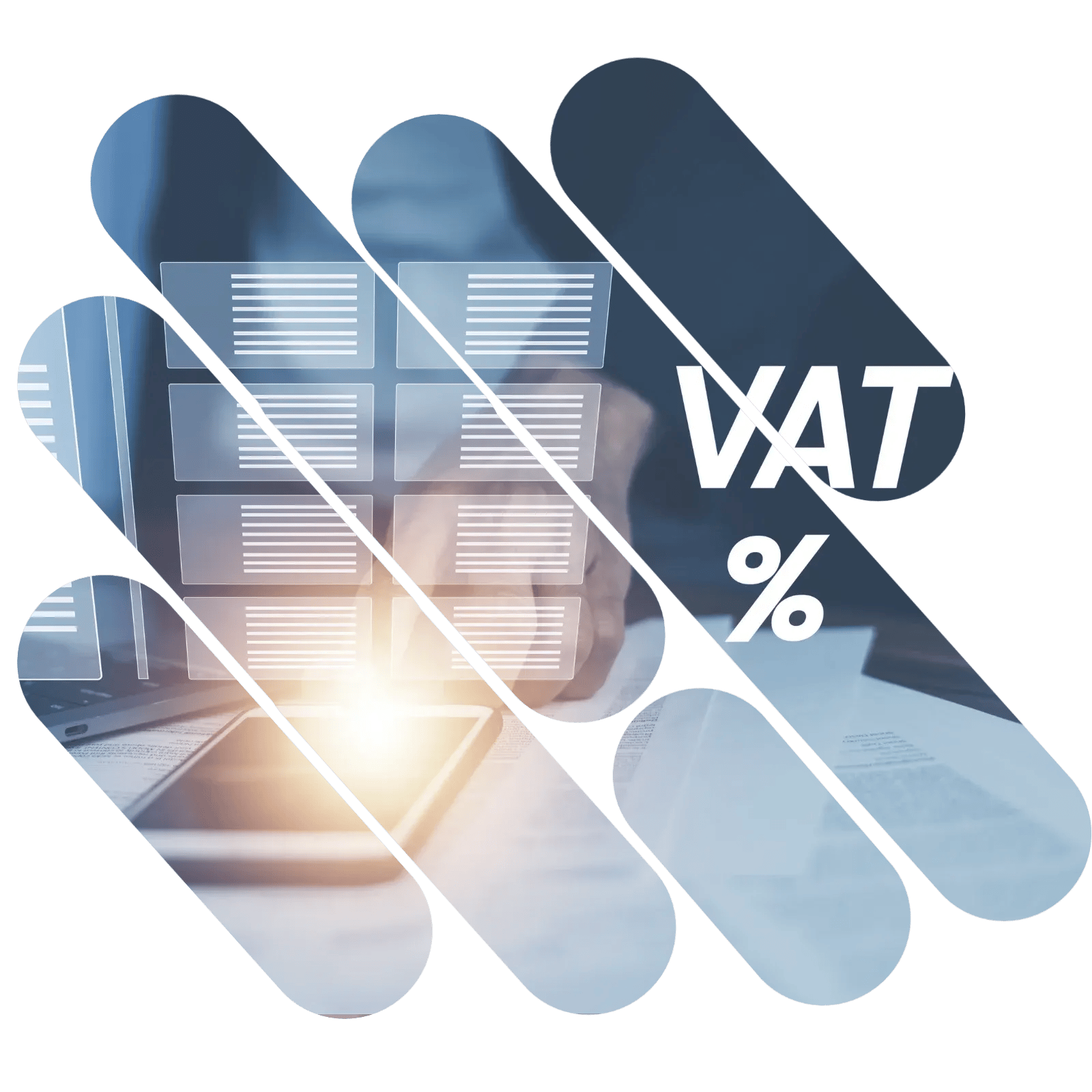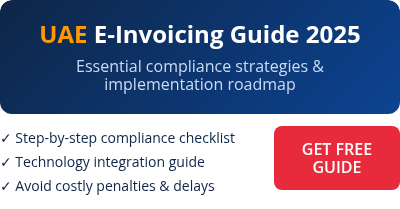ViDA - VAT in the Digital Age
Get ready for the EU’s revolutionary approach to VAT compliance and real-time digital reporting.

What is ViDA?
The VAT in the Digital Age (ViDA) initiative is the European Commission’s ambitious plan to modernize and harmonize VAT processes across the EU. With growing digitalization and increasing cross-border trade, the EU aims to create a unified digital VAT environment that reduces fraud, simplifies reporting, and brings VAT compliance into the 21st century.
ViDA introduces mandatory e-invoicing, real-time digital reporting, and new VAT rules for digital platforms — ensuring businesses across Europe operate under the same transparent framework.
Why ViDA matters:
- Standardized e-invoicing across member states
- Introduction of Digital Reporting Requirements (DRR)
- Expansion of VAT rules to digital platforms
Who is affected by the ViDA initiative?
The ViDA initiative impacts all businesses selling goods or services to customers within the European Union, whether they are established inside or outside the EU. This also applies to online marketplaces, digital platforms, and intermediaries that facilitate transactions between sellers and buyers.
Key Components of ViDA
Digital Reporting Requirements (DRR)
ViDA’s core element is the introduction of real-time (or near real-time) reporting of transactional data. This will replace traditional VAT returns in many cases, making e-invoicing the default format for cross-border B2B transactions. All invoices must follow a standardized format, ensuring compatibility across EU borders.
Why it matters:
- Real-time transparency for tax authorities
- Consistent invoice formats across all member states
- Faster, automated VAT processing
Platform Economy and VAT Obligations
Digital platforms that facilitate services such as short-term accommodation and passenger transport (e.g., ride-hailing services) will now face direct VAT responsibilities. In certain cases, platforms themselves will need to collect and remit VAT on behalf of their users.
What it means for platforms:
- New VAT liability — you’re not just a facilitator, you’re a taxpayer
- Mandatory transaction reporting to tax authorities
- Clearer rules for cross-border services within the EU
Single VAT Registration & Extension of OSS (One-Stop-Shop)
ViDA also seeks to reduce the burden of multiple VAT registrations by expanding the One-Stop-Shop (OSS) system. Businesses selling to multiple EU countries will be able to register in one member state and handle all VAT obligations across the EU from that single registration.
Benefits for businesses:
- Simplified VAT compliance across all EU states
- Significant administrative cost savings
- Reduced risk of non-compliance in foreign markets
Timelines - When Does It Come Into Force
The new ViDA regulations will be gradually implemented between 2024 and 2028. Below is a detailed breakdown of the proposed changes across five key areas:
E-invoicing
From January 2024
- Member States will be allowed to introduce mandatory e-invoicing without requiring prior authorization from the European Commission — a significant simplification compared to today’s rules.
- E-invoices must comply with the European Standard EN 16931, which is currently used for B2G (Business-to-Government) transactions under Directive 2014/55/EU.
- Acceptance by the invoice recipient will no longer be required, and businesses will no longer be allowed to issue summary invoices.
From January 2028
- E-invoicing will become the default format for invoicing across the EU.
- While domestic paper or other formats might still be permitted in some cases, e-invoicing will be mandatory for all cross-border B2B transactions within the EU.
Digital Reporting Requirements (DRR)
From January 2028
- Existing recapitulative statements will be replaced by a new Digital Reporting System for intra-community transactions. This system aims to combat VAT fraud, particularly missing trader fraud.
- The same types of transactions currently covered by recapitulative statements will be included, along with domestic reverse charge transactions (as defined in Article 194 of the EU VAT Directive — where a non-established supplier sells to a VAT-registered business in another member state).
- Instead of submitting aggregate data per customer, businesses will need to report each transaction individually.
- All data must be submitted electronically, using channels designated by each Member State.
- While European Standard EN 16931 will remain the default reporting format, Member States may allow additional formats — provided they are interoperable with the European Standard.
- Transaction data can be submitted by the supplier themselves or by a third party acting on their behalf.
- Member States will also have the option to introduce domestic digital reporting requirements, similar to the intra-community system.
- The European Commission expects that existing domestic digital reporting frameworks (e.g., SAF-T, SII, MyDATA) will gradually align with the new EU-wide system by 2028.
Platform Economy VAT Rules
From January 2025
- Clarified VAT treatment of platform services: Services provided by digital platforms (like accommodation booking sites or ride-hailing apps) to private individuals will be treated as intermediary services, rather than as electronically supplied services.
- The place of taxation for these platform services will be where the underlying service is performed, in line with the EU VAT Directive.
- A deemed supplier regime will apply to platforms facilitating accommodation and passenger transport services. If the underlying supplier does not charge VAT, the platform itself will become responsible for collecting and remitting VAT.
- For goods supplied within the EU, platforms will also become deemed suppliers for all B2B and B2C transactions facilitated on their platform — whether the supplier is EU-based or non-EU.
- For imports of low-value goods into the EU, the Import One Stop Shop (IOSS) scheme will become mandatory for platforms facilitating such transactions.
Single VAT Registration & Expanded OSS
From January 2025
- The Union One Stop Shop (OSS) scheme will be expanded to cover additional B2C supplies of goods, including:
- Goods with installation or assembly
- Goods supplied on ships, aircraft, or trains
- Supplies of gas, electricity, heating, and cooling
- Domestic supplies of goods, allowing some domestic transactions to be reported via OSS.
- Taxable dealers applying the margin scheme for second-hand goods can opt into OSS to handle VAT on cross-border sales.
- The domestic reverse charge mechanism (Article 194 of the VAT Directive) will become mandatory, relieving non-established suppliers of the need to register locally in some cases.
- The current call-off stock simplification (Article 17a VAT Directive) will end on 31 December 2025.
- A new, broader OSS simplification for transfers of own goods will be introduced — covering scenarios where businesses move goods across borders within their own supply chains. This will include transactions currently covered by the outgoing call-off stock rules.
- The Non-Union OSS will be extended to all services provided by non-EU suppliers to non-taxable persons, even if the customer is not located in the EU.
What’s Next?
- ViDA’s legal changes will modify three key EU regulations:
- The VAT Directive (2006/112/EC)
- The Council Implementing Regulation (EU 282/2011)
- The Council Regulation on Administrative Cooperation (EU 904/2010)
- The legislative proposals will now move through the Council of the EU, with input from the European Parliament and the Economic and Social Committee.
- Businesses across the EU — and those trading with the EU — should begin assessing their readiness for these changes. In particular:
- Preparing ERP systems for standardized e-invoicing
- Reviewing VAT registration strategies in light of the expanded OSS
- Understanding the new VAT obligations for platforms
- Preparing for more real-time transactional reporting across the EU
- In Greece, businesses will need to assess the impact of ViDA in relation to the MyDATA e-books system and the upcoming requirement for mandatory e-invoicing in intra-community transactions.
How ViDA Impacts Businesses
ViDA brings both opportunities and obligations for businesses across the EU. Companies will need to adopt standardized e-invoicing processes, real-time tax reporting, and ensure seamless data exchange with tax authorities. Non-compliance may result in penalties and disrupted operations.
Top impacts on your business:
- Mandatory e-invoicing for cross-border B2B transactions
- Need for fully integrated VAT reporting tools
- Compliance risk for platforms facilitating certain services
- Pressure to digitally transform VAT and invoicing processes
ViDA Compliance with Infinite e-Invoicing Platform
With the Infinite e-Invoicing platform, your business can stay ahead of ViDA’s requirements — today and tomorrow. Our fully compliant solution ensures you’re ready for the future of digital VAT.
What we offer:
- Automated e-invoicing in line with EU standards (PEPPOL, UBL, XML)
- Real-time tax reporting directly to tax authorities
- Seamless ERP integration across multiple systems
- Centralized VAT compliance management for all EU countries
- Continuous updates to match regulatory changes
Benefits:
- One platform for all countries and partners
- No need to track regulatory updates manually — we do it for you
- Compatible with all major ERP systems
- Built-in audit trails and digital archiving to meet ViDA requirements
ViDA FAQ – Your Questions Answered
What is ViDA?
ViDA (VAT in the Digital Age) is an EU initiative aimed at modernizing VAT processes through mandatory e-invoicing, real-time reporting, and simplified VAT registration across the EU.
Why is ViDA necessary?
ViDA addresses the challenges of the digital economy and helps combat VAT fraud through faster, standardized data reporting.
What are the key areas covered by ViDA?
ViDA focuses on:
- VAT rules for digital platforms
- Single VAT registration across the EU
- Digital Reporting Requirements (DRR)
Who does ViDA apply to?
ViDA applies to businesses selling goods or services to customers in the EU, including platforms and marketplaces — regardless of where the business is based.
How will ViDA change invoicing?
ViDA will make structured e-invoicing mandatory for cross-border B2B transactions and phase out paper and summary invoices.
What is the link between e-invoicing and DRR?
E-invoices are transactional documents exchanged between businesses, while DRRs are real-time reports sent to tax authorities. ViDA combines both.
Does ViDA apply only to cross-border sales?
No, ViDA applies to both cross-border and domestic transactions, depending on each Member State’s implementation.
Will ViDA affect existing e-invoicing rules (CTC models)?
Yes, Member States will need to align their existing systems with ViDA’s requirements.
What are the key benefits of ViDA?
ViDA helps reduce VAT fraud, accelerates digital transformation, and simplifies VAT registration across the EU.
How should businesses prepare for ViDA?
Choose a service provider that offers compliant e-invoicing and VAT reporting solutions across all affected EU countries.
How to choose the right service provider for ViDA compliance?
With ViDA introducing sweeping changes to VAT compliance across the EU, businesses need to carefully consider their approach. The greatest advantage lies in partnering with a trusted provider that offers comprehensive coverage across all affected countries and provides flexible, future-proof technology.
Such a provider not only ensures consistent, compliant operations but also brings deep expertise in global tax regulations — helping businesses stay ahead of evolving requirements.
For CFOs, Finance Directors, and Tax Managers, the key question becomes:
Is there one partner who can fully support us through ViDA and beyond, while managing compliance across multiple jurisdictions?



